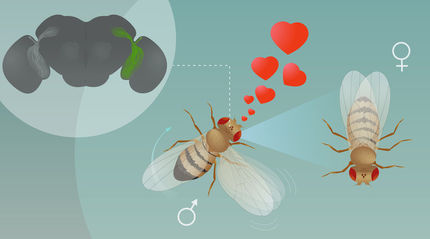New probes for the brain
The Department of Microsystems Engineering of the University of Freiburg is Coordinating the Research Project NeuroSeeker
Advertisement
Developing tiny probes for research and brain-related medical applications – that is the goal of the project NeuroSeeker, launched in February 2013 with a kick-off event in Leuven. The interdisciplinary project pools the expertise of ten partner institutions from Europe and Canada. The University of Freiburg will receive around 1.7 million euros from the European Union (EU) in the coming four years for its contribution. The project coordinator is Dr. Patrick Ruther, who works under Prof. Dr. Oliver Paul at the Microsystems Materials Laboratory of the University of Freiburg’s Department of Microsystems Engineering (IMTEK).
NeuroSeeker is an extension of the successful EU project NeuroProbes, which was completed at the end of the year 2010. The scientists are developing new probes for recording neural signals and stimulating optical tissue. In order to attain a fundamental understanding of the brain, it is essential to derive signals directly from its basic building blocks, the neurons. The probes will thus be designed to measure and analyze the signals of individual nerve cells and their connections, and if necessary to optically or electrically stimulate nervous tissue. They will serve as instruments for basic neuroscientific research as well as for medical applications, for instance in the diagnosis of epilepsy.
The partner institutions are the research center Imec, the University of Parma, the universities Amsterdam and Nijmegen and the University of Lethbridge. Other institutions contributing their expertise to the project are the Fundação Champalimaud, the Max Planck Society from Germany, the Hungarian Academy of Science, and the joint IMTEK-Imec spin-off ATLAS Neuroengineering from Belgium. NeuroSeeker will support the new Cluster of Excellence BrainLinks-BrainTools of the University of Freiburg with its competence in neurotechnology and brain-machine interfaces.
Most read news
Organizations
Other news from the department science

Get the life science industry in your inbox
By submitting this form you agree that LUMITOS AG will send you the newsletter(s) selected above by email. Your data will not be passed on to third parties. Your data will be stored and processed in accordance with our data protection regulations. LUMITOS may contact you by email for the purpose of advertising or market and opinion surveys. You can revoke your consent at any time without giving reasons to LUMITOS AG, Ernst-Augustin-Str. 2, 12489 Berlin, Germany or by e-mail at revoke@lumitos.com with effect for the future. In addition, each email contains a link to unsubscribe from the corresponding newsletter.






















































